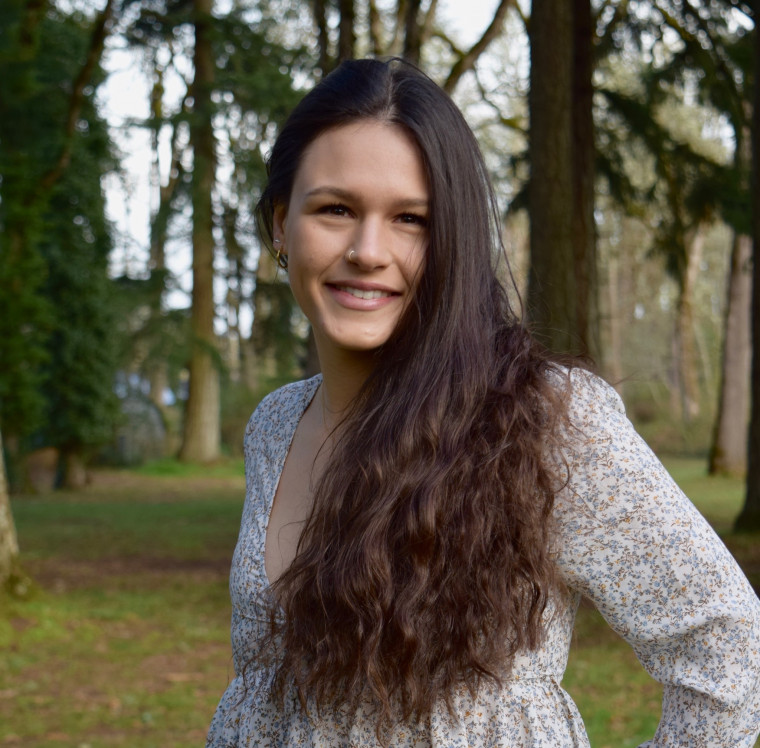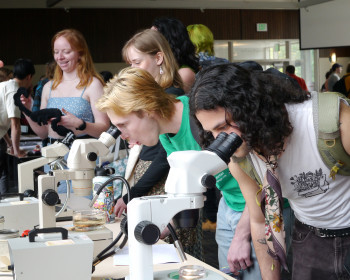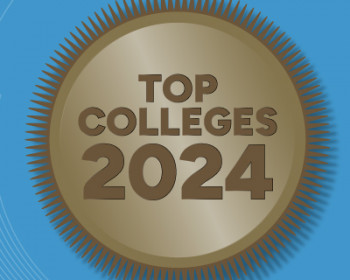Hannah Singleton
Making the decision to attend Lewis & Clark was easy, it felt like coming
home.

Pronouns
Degree and Class Year
Hometown
Current City
Major
Extracurriculars
Overseas study
Job Title, Organization
What three words would you use to describe L&C?
What three words would you use to describe L&C?
Inclusive, Supportive, Impactful
What made you want to come to Lewis & Clark?
When touring the Lewis & Clark campus, I encountered a community that embodied the liberal arts spirit I was seeking. The learning environment was unique to any Ihad seen before, and diverse perspectives were being welcomed in every direction I turned. I felt capable of showing up as my authentic self and valued that there was space for others to do the same. Along with those aspects, the campus embraced every part of the Pacific Northwest lifestyle I grew up appreciating. Making the decision to attend Lewis & Clark was easy, it felt like coming home.
What have you been doing since graduation?
After graduating, I spent three months living in southwest France while being hosted in exchange for work through a program called Workaway. I participated in a yearly fig harvest, did renovations on a Provençal farmhouse, and helped a B&B get up and running for business. Once coming back to the States, I moved to Savannah, Georgia where I accepted a position at the Savannah College of Art & Design. In my role as an Academic Operations Manager, I support a portfolio of academic departments with project management for school-based initiatives. I also periodically travel to the university’s Lacoste, France campus where I coordinate student services and support excursions with French interpreting and cultural education.
How did Lewis & Clark prepare you for your job?
Lewis & Clark readied me for the world by giving me a vocabulary and a conscience for all of my future interactions and experiences. I was shown that I could be confident in what I have to say, capable of representing myself, while also being aware of how those factors create a context around me. Having an understanding of this is invaluable in a workplace, especially the one I’m in now. Although I’m the only young professional on my team, I am able to match my experienced counterparts in my level of communication, collaboration, and people-oriented skills. My education at Lewis & Clark allowed me to build the foundation to reach this height, and supported me in my belief that I could achieve it.
What would you say is the most important thing you learned at Lewis & Clark?
The most important thing I learned was the nature of ethnography. The ethnographic
research I performed in sociology and anthropology courses gave me an idea of how to see beyond the surface and understand the social context of those I communicate with. My studies also gave me an introspective lens into who I am in my environment and to my community. Through this practice, I gained the tools to navigate the world with sensitivity to difference and a deep appreciation of everyone’s unique personhood.
Why did you choose your majors?
I majored in sociology and anthropology because the classes, professors, and curriculum were social justice oriented, globally-minded, and illuminated how I see the world in every possible way. I found a community within the sociology and anthropology department that was striving to learn in order to enact change. Stepping into that space meant finding myself inspired by those around me and surprised by the impact I could have. And by the end of my studies, I felt capable of pursuing any career path possible because of the interdisciplinary nature of the program.
I majored in French studies because I wanted to grow my passion in language learning and cultural connection. I was incredibly lucky to find a fully-immersive experience with professors who taught on Francophone history, literature, and culture in engaging and creative ways. In the first major class I took, I also encountered a tight-knit group of students who all shared a love for language study and the places it can take you. I went into college yearning to find this and knew at that moment that majoring in French would be an essential part of my academic experience.
How do you stay connected to Lewis & Clark as an alum?
I’ve stayed connected through attending events by the Lewis & Clark Young Alumni
Council, meeting with the Career Center to get advice on my career path, and following campus happenings on social media. I also make a trip to visit Lewis & Clark anytime I’m in Portland and stay in close contact with other alums from my graduation year.
How do you describe the liberal arts?
I would describe liberal arts as a pedagogical philosophy which seeks to dive into the deepest levels of critical thinking. It covers a vast range of subjects while staying aligned to core values in freedom of thought, social justice, and a global consciousness. A liberal arts education will engage a student to achieve high levels of problem-solving, teamwork, and adaptability. The liberal arts education at Lewis & Clark is so comprehensive that I could pursue nearly any field or career and feel sure that I could succeed beyond expectations.
What was your favorite class? How did it expand your knowledge?
My favorite course was Topics in Medical Anthropology, taught by Professor Sepideh Bajracharya. Every class felt like a radical restructuring of how I viewed the body in pain, care networks, the biomedical industry, and so much more. Professor Bajracharya supported students as they explored their own experiences in pain, or the witnessing of someone else’s pain. At the end of the semester, I had done several intimate interviews with a family member regarding their chronic illness. The ethnography which I wrote as a result of this opened a line of communication which is now continually evolving how I care for them in pain. This class did not just give me a vocabulary to rethink the way Western society interprets the body. It actually guided me to taking adverse actions which prioritize kinship, compassion, and a will to carry the burden of pain together.
If you studied overseas while at Lewis & Clark, how did you choose your program? What did your overseas study add to your L&C experience?
I chose to do the East Africa Regional Studies program because I was drawn to explore a part of the world which is not represented enough. The wide range of program courses offered me the chance to learn about the history, culture, and biodiversity of Tanzania all at one time. This was through unique opportunities to live with homestay families, spend weeks on safari and visit cultural sites of great significance, along with so much else. I was also very motivated by the
chance to learn Swahili, one of the ten most widely spoken languages in the world. The program felt like a once in a lifetime opportunity that I didn’t want to miss.
I came back from the Fall semester in Tanzania as a different person. I had lived an experience which felt too breathtaking to put into words. I brought reflections into the classroom and was given space to share them as my voice began to form. This brought forth conversation about cultural relativity, language acquisition, the everlasting consequences of colonialism…it became relational. I would not just say that this study abroad experience enhanced my time at Lewis & Clark, it defined it. It was interwoven into every aspect of my academic studies from the moment I returned until graduation. I chose to do the French Language Intensive Program in Strasbourg after learning that I would have the opportunity to take courses at the prestigious Sciences Po. Taking classes alongside native French speakers was an experience I had always hoped for and the program offered that plus so much more. I could take sociology classes at Sciences Po, aligning my two majors into an opportunity to study the sociological field from the French perspective. Along with this, I was very excited about the program’s living arrangement which placed me with a local homestay family for the semester.
My choice to do the Strasbourg program in Spring 2020 was an unfortunate one being that I was only two months into the semester when I had to fly back to the US due to COVID-19. I reflected on the months leading up to lockdown and incorporated my thoughts on this time into my studies as they quickly shifted to online. I reflected on how grateful I was to be living fully up until the pandemic began, to be advancing my language skills and exploring a new city. And how privileged I was to be able to leave France before borders were shut down and the lockdown order was implemented. The classes I was in following my return were an opportunity to discuss these inner thoughts and understand what my peers were thinking. I saw that being part of the Lewis & Clark community as it came together to support discussion in the midst of the pandemic was a major privilege in itself.
More Admissions Stories
Admissions is located in Frank Manor House on the Undergraduate Campus.
MSC: 32
email admissions@lclark.edu
voice 503-768-7040
fax 503-768-7055
Vice President of Admissions and Financial Aid
Eric Staab
Admissions
Lewis & Clark
615 S. Palatine Hill Road MSC 32
Portland OR 97219

